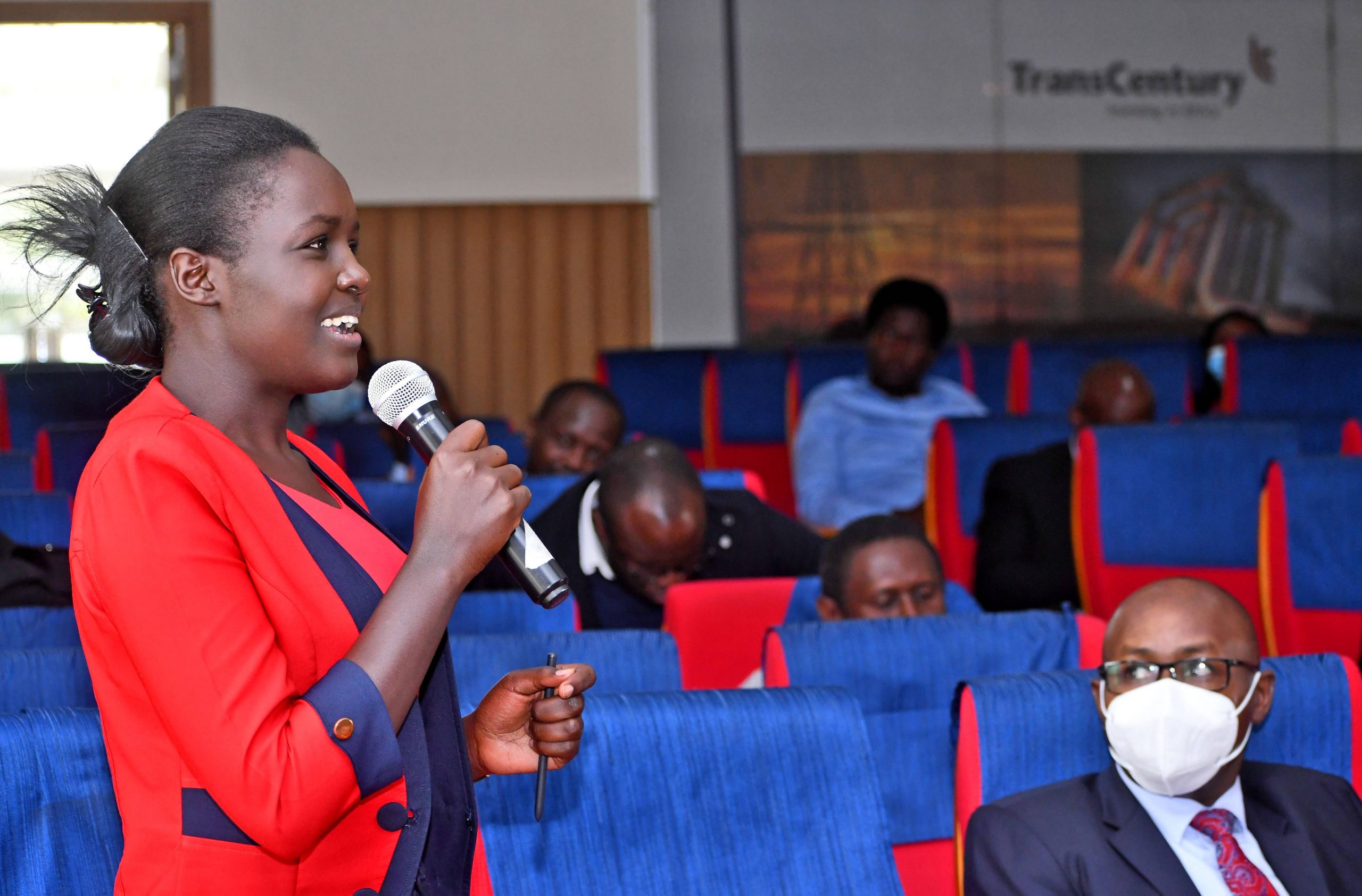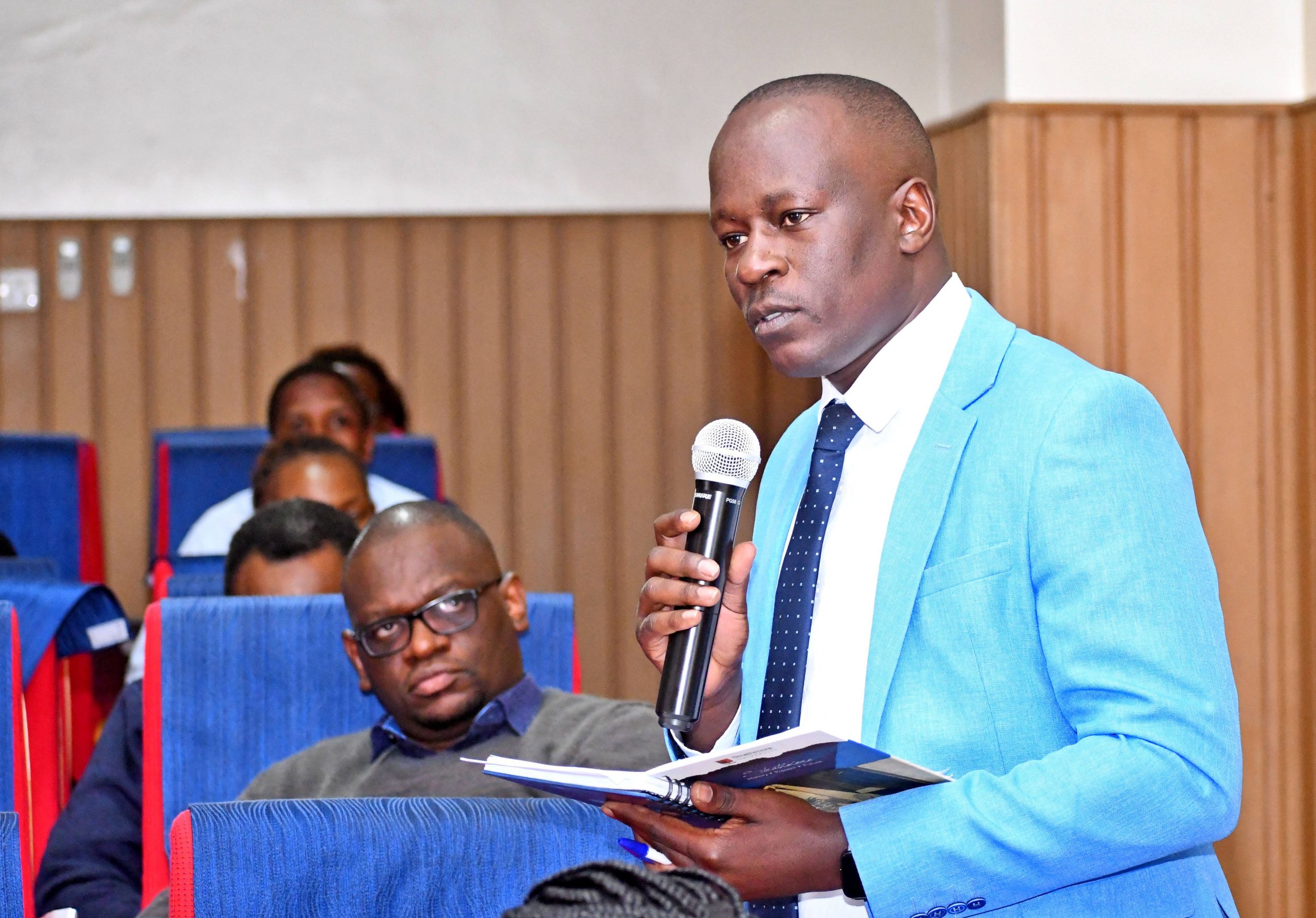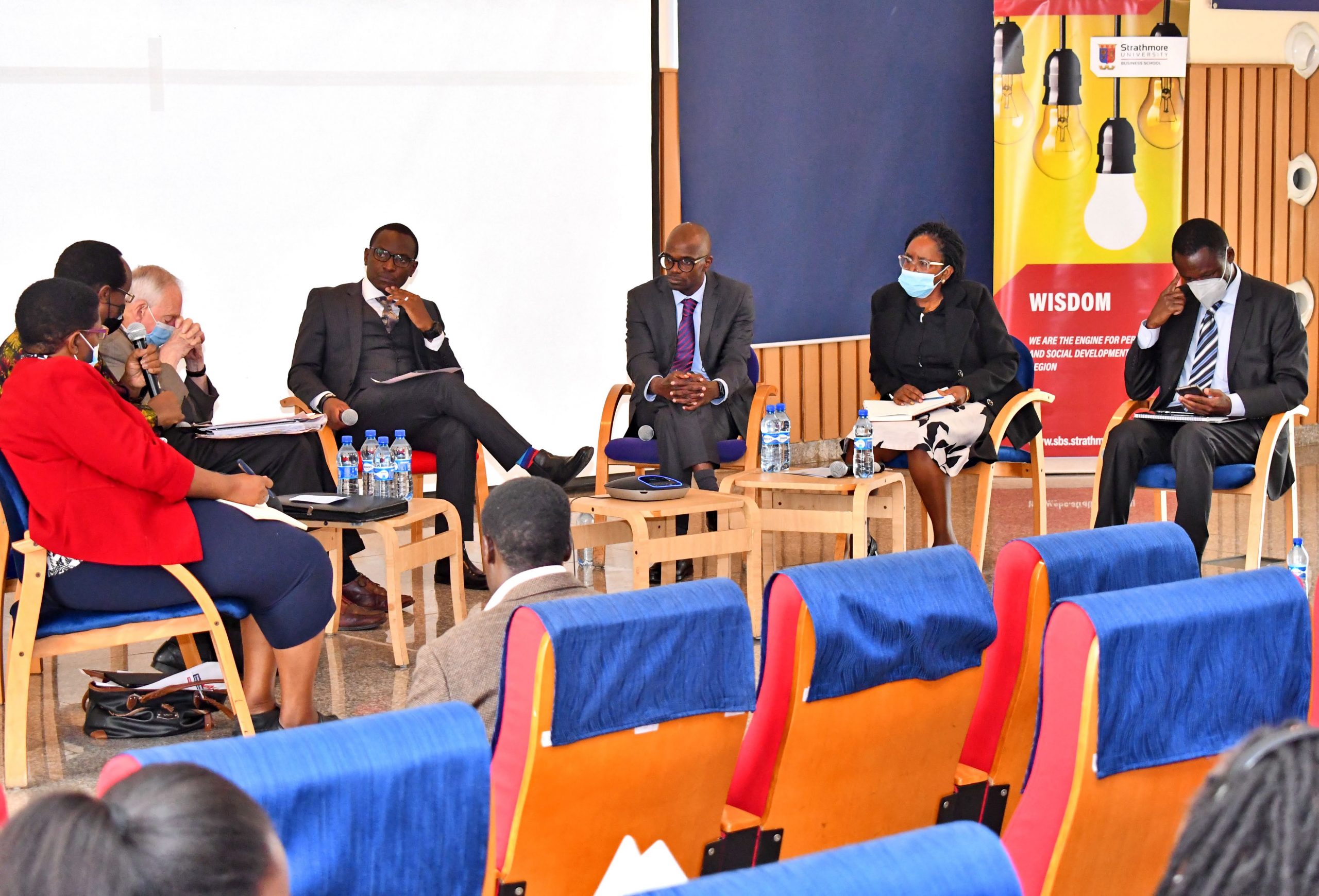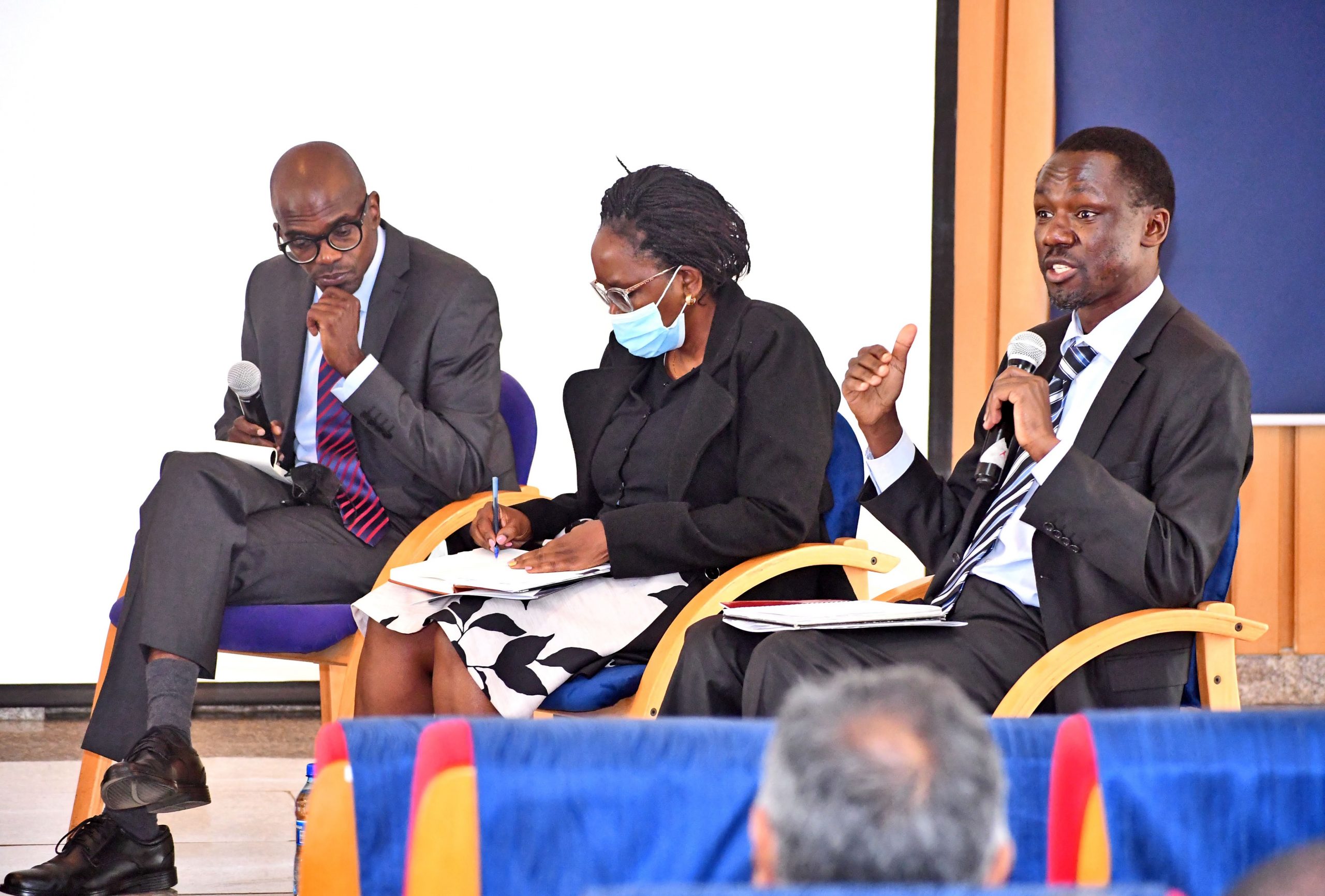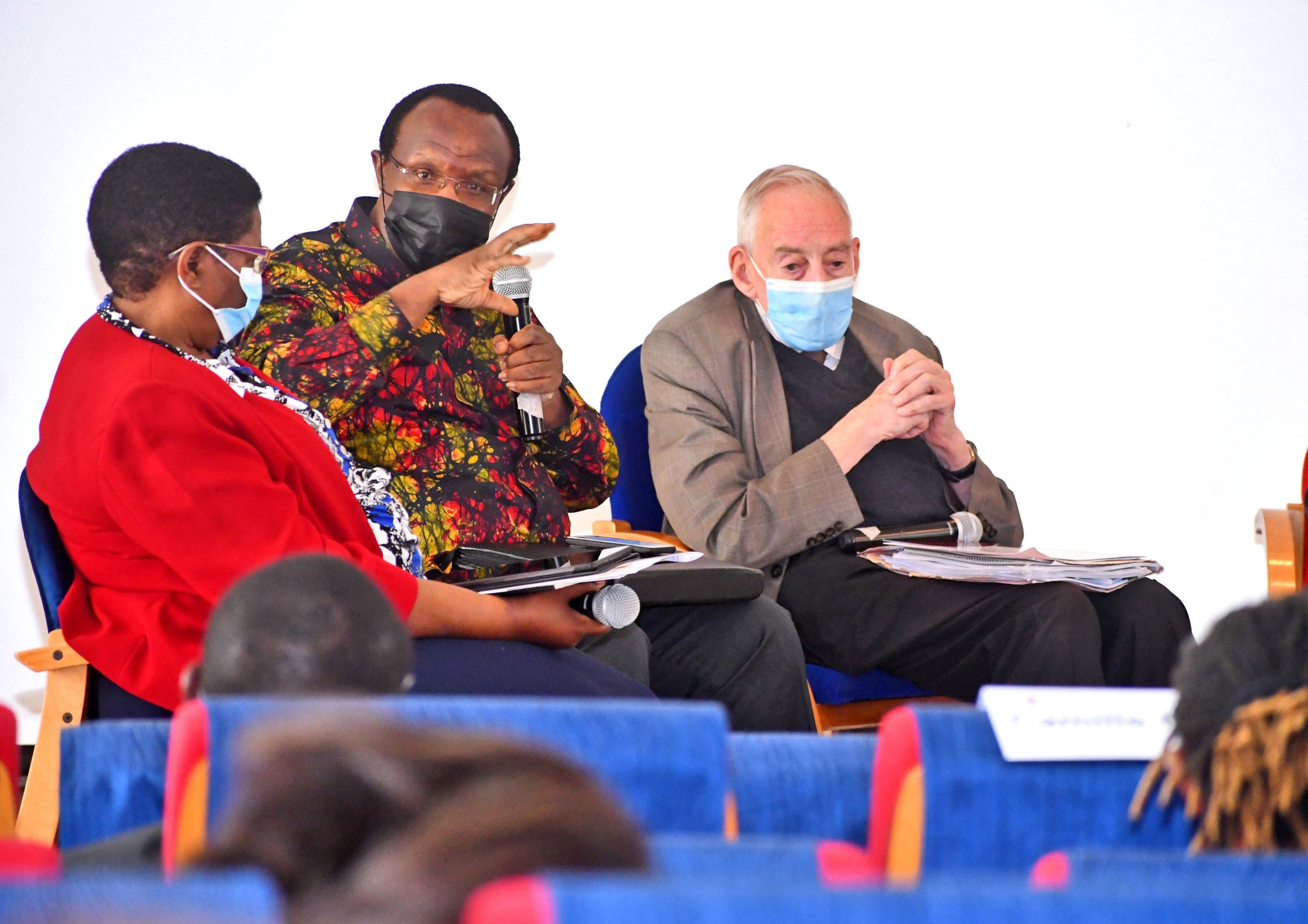Is a global recession inevitable? Just how concerned should we be? How can the Kenyan economy be better prepared to navigate the external shocks caused by a global economic slowdown, snarled post-COVID-19 supply chains, rapidly rising production costs and the prospect of global food insecurity caused by a war in Ukraine? These are some of the critical questions that leading economists, the stewards of a core aspect of our society, confronted at Strathmore University Business School’s Economic Symposium held on July 7th 2022. This event brought together the nation’s preeminent economic minds and thought leaders to discuss the economic threats and opportunities in the country.
The annual inflation rate in Kenya rose to 7.9 per cent in June of 2022, breaching the upper limit of the Central Bank of Kenya’s target range of 2.5 percent -7.5 percent for the first time since August 2017. Ordinary people are struggling more and more every day with the price of fuel, food and basic commodities. Industry is being challenged to remain competitive with input and transportation costs rising rapidly and shortages throughout the global economy driving scarcity, threatening to push already punishing costs even higher.
The world as a whole is facing substantial inflationary headwinds. Global inflation is forecast to reach 7.9 per cent in 2022, more than doubling the 2001-2019 global annual average of 3.8 percent. At best, the economic future appears cloudy with the horizon darkening even more with the prospect of another global recession. What does this mean for countries like Kenya that have small, open economies particularly vulnerable to external shocks? What changes can the Kenyan government and private sectors make to insulate themselves from a precarious external environment?
With these challenges in mind, Strathmore University Business School’s Acting Executive Dean, Dr. Angela Ndunge, noted, “We aim to create a platform that will continuously engage both public and private stakeholders to devise lasting solutions for our country.”
According to the Kenya National Bureau of Statistics, Kenya has recorded the highest cost of living since 2017. Global inflation, the war in Ukraine and the aftermath of the COVID-19 pandemic have all had knock-on effects on Kenya. These have been compounded by local issues such persistent budget deficits and poor financial governance. Dr. Thomas Kibua, a renowned senior economist, former Deputy Governor of the Central Bank of Kenya and an Adjunct Faculty member at SBS, framed the discussions by asserting, “We are here to look for solutions; not just play the critic. We will dissect the issues and look for economically feasible solutions that are politically tenable.’’ The discussions centred around enhancing productivity in sectors that drive the economy, macroeconomic stability, the issue of debt and deficits and the importance of improving fiscal responsibility.
Addressing Urbanisation and Unemployment
Rapid population growth and urbanisation has many socio-economic implications for Kenya. In 2018, the projected urban population by 2022 was 16 million people. The Kenyan population, 75 percent of which is made up of the youth aged between 18 and 35 years, is projected to reach 66.45 million by 2030. Unfortunately, a large percentage of this population is unemployed and are marginalised in terms of access to opportunities, representation and participation. Speaking during the session, Professor Terry Ryan, a leading economist and an advisory board member, Strathmore University, observed that if we miss out on looking at how the economy is designed and avoid thinking of the long term, then we will fail to address real problems. These problems include how the labour force is going to absorb new entrants and fail to map out which industries will spawn from population growth that will support economic growth.
Kenya’s rapid rate of urbanisation will continue to increase pressure on housing and urban infrastructure. Housing is inadequate and the growth of slums and informal settlements are expanding. Some nations have experienced urbanisation that accompanied skills upgrading, industrialization and the expansion of the urban formal sector. In Kenya, there is an increased demand for products related to affordable housing units. However, this demand may not translate into a rapid increase in jobs in the formal sector in Kenya. According to Professor Ryan, Kenya does not generate enough savings as a country that can be channelled to increasing more white-collar jobs in the country. The jobs in the formal sector cost a fraction of jobs in the informal sector. Kenya has a vibrant ‘Jua Kali’ sector that fills important gaps in the economy. Where professional education is scarce, expert niche experience and hands-on learning has taken over. Policies to support the ‘Jua Kali’ sector may help to boost the economy.
Another glaring issue that will become increasingly difficult to tackle in the future is access to water. The United Nations classifies Kenya as a water-scarce country since it has less than 1000 cubic metres per capita of renewable freshwater supplies. Numerous factors including global warming, contamination of drinking water and a lack of investment in water resources has aggravated the water crisis in Kenya. It will be important to map out the sources of water available to towns and cities and invest in improved water governance and infrastructure.
The Kenyan urban system is characterised by one dominant metropolis (Nairobi city) supported by five major urban centres (Mombasa, Kisumu, Nakuru, Eldoret and Thika). Other urban centres in the hierarchy of municipality, town, urban, rural and market centres are spread throughout the country. In 2010, Kenya established a system of devolved government with 47 lower-level county governments. Urban-related policies and schemes can be biased for megacities like Nairobi. To absorb the increasing population and labour force and enhance their revenue, counties need to attract workers and build their own industries. Balanced urbanisation will require these regional capitals to play a role as regional hubs and therefore Kenya should invest in strengthening their capacity.
Increasing Long-Term Sustainable Agricultural Productivity
The war in Ukraine is battering a global food system already weakened by the pandemic and climate change. The UN General Secretary, Antonio Guerres, warned that there may be a spectre of a global food shortage. The rising costs of staple foods present challenges for countries that heavily rely on imports. Pastoral and marginal agricultural areas of eastern and northern Kenya have only received minimal rainfall during the March to May 2022 long rains season.
During the symposium, Economist Dr. David Ndii observed that as much as it is important to take the long-term view when devising interventions, it is also equally important to stabilise the economy in the next six months given the situation on the ground. A point of concern for most countries in Sub-Saharan Africa is the increased likelihood of civil strife as a result of food and energy-fuelled inflation, particularly during times of heightened political instability. Supply disruptions and soaring food and fertiliser prices may call for trade policies that ensure the free flow of food across borders throughout the region. Since Kenya has limited fiscal space, policymakers may have to look at innovative solutions such as reducing or waiving import duties on stable foods in the short term.
In the long term, the most significant barriers to and opportunities for increasing long term sustainable agricultural productivity in Kenya need to be investigated. Professor Ryan proposed that agriculture and pastoralism in Kenya will cease to become a way of life and become a commercial activity in the future.
Vegetable oils are imported and yet their domestic production is viable. Kenya imports 95 per cent of its total edible oil requirements and yet many oil-seeds such as sunflower, sim sim, soya beans, rapeseed, coconut, castor and groundnuts can be grown and processed locally. Policy decisions to assist edible oil processors to support large out-grower schemes may support local production. In the long term, opportunities in oilseed processing industries will stimulate supply and meet some of the domestic market demand. In the short term, edible oil processors can come together to conduct joint procurements and ship in large quantities to reduce costs.
Reducing Budget Deficits and Improving Fiscal Discipline
Unfortunately, budget deficits and a high appetite for acquiring debt in Kenya have led to irresponsible borrowing and spending. Sri Lanka, Ghana and Pakistan have all fallen like dominos in the face of global debt crises. The panellists at the symposium mulled over the root causes of Kenya’s current debt crisis. As a small, open economy, Kenya cannot withstand shocks if budget deficits impose a fiscal strait-jacket over the country, reducing its capacity to withstand shocks by rolling out fiscal stimuli.
Phyllis Makau, Director, Parliamentary Budget Office, observed that there are many political pressures that compound the issue. Politics and fiscal responsibility are intertwined. Mega-projects such as the new expressway have to be financed and yet citizens want to ride it for free. Citizens must be socialised differently so that they realise what the implications of megaprojects are for the future and can advocate for responsible spending by elected officials. The country must work towards curbing expenditure and acquiring fiscal discipline and accountability. Mr. Kwame Owino, CEO of the Institute of Economic Affairs, supported this view and mentioned that the ambitions of Kenya’s Vision 2030 may need to be tempered in the face of the current economic situation as more expenditure will only plunge Kenya into further debt.
Many projects have also not been completed efficiently because of poor resource allocation and lack of operational efficiency. Is corruption actually budgeted for? Corruption needs to cease to be a way of life in Kenya. It is imperative to restore confidence by formulating a credible macro- economic and fiscal framework. Expanding the tax base, tax compliance and meeting revenue targets is a crucial part of this. However, let us be responsible with the revenue we have. Daily discipline in the management of public affairs may seem mundane but is critical to turning the tide on fiscal irresponsibility.
The broad consensus is that fiscal sustainability entails policies that promote economic growth, maintain national solvency, a supportable debt position and create stable taxes that are equitable. Prudent fiscal policies and enforcement will help Kenya manage current and future pressures. As Kenya’s gross debt crosses the 8 trillion shillings’ mark, the old adage ‘Live within your means,’ rings especially true for Kenyan leaders and policymakers as debt repayment costs rise and the country grapples with global shocks. While Kenya cannot rewind time, the unfolding situation highlights the urgent need for governance reforms to improve debt transparency and strengthen debt management policies and frameworks.
Article by Shailja Sharma, Executive Fellow and Coach
Would you like to share an article? Write to us at sbscommunication@strathmore.edu
Share This Story, Choose Your Platform!
Your journey to business excellence starts here. Subscribe today and be at the forefront of innovation and leadership.


